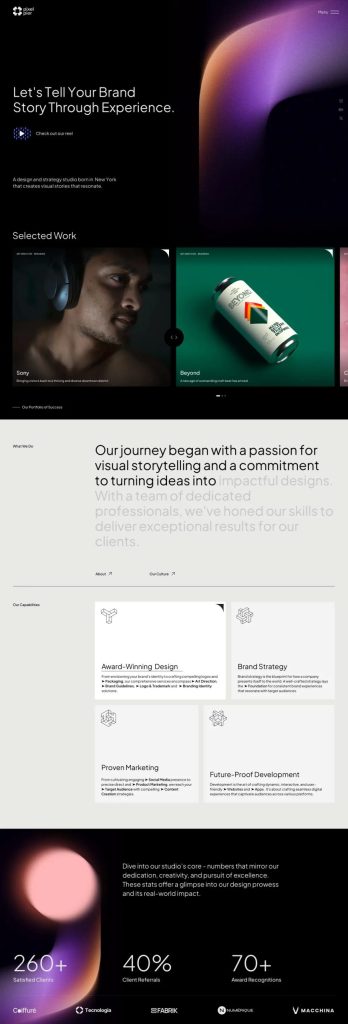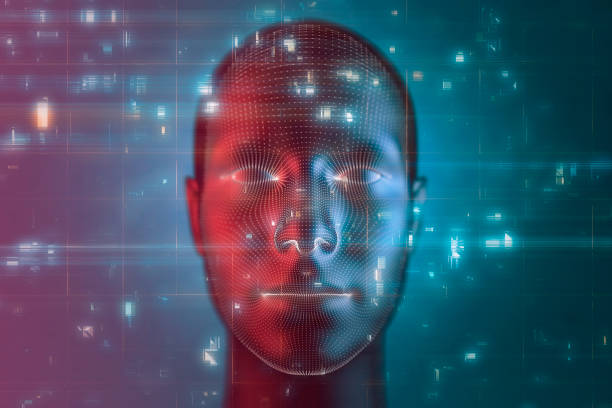As we step into 2024, the field of artificial intelligence continues to evolve at an unprecedented pace. New large models, innovative tools, and advanced applications are transforming various industries, from healthcare to finance, and from creative sectors to enterprise solutions. This article will discuss key advancements such as Google Gemini 1.5 Pro, emerging specialized AI technologies, and groundbreaking products tailored to address contemporary business challenges.
AI Large Models: Google Gemini 1.5 Pro
In early 2024, Google announced the release of Gemini 1.5 Pro, a significant upgrade to its AI language models. This new model boasts advanced multimodal capabilities, allowing it to process not only textual input but also images, audio, and potentially video. This integration of various data types enables Gemini 1.5 Pro to understand context on multiple levels, making it far more versatile than its predecessors. The model features enhanced contextual understanding, with an impressive capability to engage in conversations that span across different formats (ArXiv, 2024).
Gemini 1.5 Pro is also noted for its extended context windows, allowing it to maintain coherence over longer interactions. This breakthrough is particularly valuable for applications in tutoring systems, customer support, and complex content creation, where maintaining context over lengthy discussions is crucial (TechCrunch, 2024).
Latest Tools and APIs
Alongside large models, numerous tools and APIs have emerged to integrate advanced AI capabilities across industries. Notably, Zoho AI has introduced a suite of applications designed to leverage AI for business automation. These tools cater to various workflows, from customer relationship management (CRM) to content generation and analytics. By harnessing AI, Zoho aims to empower small and medium-sized enterprises, providing them with functionalities that were previously only accessible to larger corporations (Business Insider, 2024).
The rise of AI in intellectual property management is another notable trend. New software applications have been launched that utilize machine learning algorithms to track, analyze, and protect intellectual property more effectively. By automating tedious legal processes, these tools not only save time but also reduce the risk of human error, making it easier for innovators to protect their creations (Forbes, 2024).
Emerging AI Technologies for Specialized Use Cases
As the demand for AI-driven solutions grows, specialized applications have gained momentum. A focus on developing more reliable and debiased language models is reshaping how businesses approach AI adoption. Companies like OpenAI and Microsoft are continuously refining their models to mitigate biases that have historically plagued AI systems. In 2024, a new generation of debiased LLMs has emerged, which helps improve decision-making processes across sensitive sectors, such as healthcare and finance (MIT Technology Review, 2024).
Moreover, advancements in AI technologies for policy development have been noteworthy. Policymakers are increasingly realizing the potential of AI to analyze large datasets for better decision-making. AI tools can simulate the outcomes of various policy initiatives, enabling governments and organizations to craft data-driven solutions to complex socio-economic issues (World Economic Forum, 2024).
Innovative AI Products for Enterprise and Sector-Specific Solutions
Sector-specific AI products have also gained traction, significantly impacting industries such as enterprise, cybersecurity, and creative sectors. Businesses are leveraging AI-driven platforms for more efficient cybersecurity protocols. With the rise of sophisticated cyber threats, AI tools that can detect anomalies, predict potential breaches, and automate incident responses have become invaluable. Startups like Darktrace are pioneering innovations in AI for cybersecurity, employing machine learning to create self-learning systems that adapt to new threats in real-time (CyberScoop, 2024).
In the creative industries, AI tools are changing the way professionals approach content creation. Platforms like Adobe have integrated AI-driven features into their software suites, streamlining graphic design and video editing processes. These tools can suggest designs, automate repetitive tasks, and even help creative professionals brainstorm new ideas, significantly enhancing productivity and idea generation (Creative Bloq, 2024).
Furthermore, AI applications in healthcare are ushering in a new era of patient care. AI-driven diagnostics platforms are being developed to assist healthcare professionals in diagnosing diseases with higher accuracy. These platforms analyze data from various sources, including electronic health records, lab tests, and imaging data, to provide actionable insights (Health IT Analytics, 2024). The potential application of AI in telemedicine is also noteworthy, as patients can receive personalized care recommendations based on AI analysis of their particular health conditions.
Impact on Industries
The ongoing advancements in artificial intelligence are shaping industries in profound ways. In education, for instance, AI-driven tools like adaptive learning platforms are revolutionizing traditional teaching methods. These systems personalize learning experiences based on individual student progress, ensuring a tailored approach that can maximize educational outcomes (EdSurge, 2024). This method allows educators to identify struggling students and address their needs promptly.
Similarly, in the realm of business automation, companies are adopting AI for streamlined operations. Automation tools, powered by LLMs and machine learning algorithms, enable organizations to optimize supply chain logistics, manage inventory more efficiently, and enhance customer engagement through personalized marketing strategies (Gartner, 2024).
The future of AI also holds promise for improving sustainability. AI technologies can analyze environmental data, helping companies minimize their carbon footprint by optimizing resource usage and waste management. Organizations leveraging AI for sustainability will gain a competitive edge in a market increasingly driven by social responsibility and ecological awareness (McKinsey, 2024).
In conclusion, as we progress through 2024, the advancements in artificial intelligence are becoming increasingly impactful across various sectors. From Google’s Gemini 1.5 Pro with its multimodal capabilities to Zoho’s innovative applications for business automation, the landscape of AI continues to expand. Emerging tools for intellectual property management, specialized debiased models, and products tailored to sectors like healthcare and cybersecurity are reshaping industries and setting new standards for efficiency, creativity, and ethical AI use. As these technologies mature, their potential to facilitate groundbreaking solutions will undoubtedly redefine the future of work and everyday life.
### Sources
1. ArXiv, 2024. “Gemini 1.5 Pro: A New Era in Multimodal AI.”
2. TechCrunch, 2024. “Google’s Gemini 1.5 Pro: Context at a New Scale.”
3. Business Insider, 2024. “Zoho AI Launches New Suite of Business Automation Tools.”
4. Forbes, 2024. “AI Technologies Impacting Intellectual Property Management.”
5. MIT Technology Review, 2024. “Combating Bias in Language Models: The New Wave.”
6. World Economic Forum, 2024. “AI and Its Role in Policy Development.”
7. CyberScoop, 2024. “Darktrace: Pioneering AI Innovations in Cybersecurity.”
8. Creative Bloq, 2024. “How AI is Revolutionizing Creative Industries.”
9. Health IT Analytics, 2024. “AI in Healthcare: Transforming Patient Diagnostics.”
10. EdSurge, 2024. “Adaptive Learning: The Future of Educational Technology.”
11. Gartner, 2024. “Business Automation with AI: A Path to Efficiency.”
12. McKinsey, 2024. “Sustainability and AI: An Unprecedented Partnership.”





























